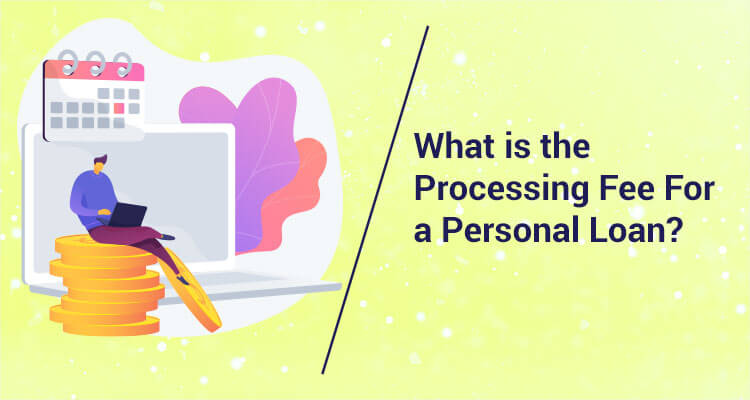
Everything You Need to Know About the Personal Loan Processing Fees
A personal loan is one of the best financial tools for meeting your expenses. However, it is important to understand that the charges and current personal loan interest rates associated with personal loans are not limited to just interest. Many other charges are imposed on the amount of the personal loan by the lender. It is important to determine the affordability of a loan before considering it. As a result, it is important that you ask your lender about and considers all the charges associated with your loan before you take out a personal loan.
Overview of processing charges
The lender charges personal loan processing fees to cover the costs incurred in processing a loan. Several administrative costs are involved in the processing and sanctioning of a loan, which will be clearly stated in the loan agreement, such as the handling of documents, credit checks, etc. A borrower must pay a personal loan processing fee of a certain percentage or amount for a loan. The processing fee of a loan can vary depending on the type of loan, the borrower’s creditworthiness, and the loan amount.
What’s the processing fee a lender can charge?
Lenders are not regulated about how much personal loan processing fees they can charge. It should be noted, however, that although there are no specific regulations for personal loans, the law requires all the charges associated with them to be transparent and non-discriminatory. Depending on the cost incurred, different types of personal loan processing fees are charged by different lenders. The fee may vary from customer to customer, depending on a variety of other factors.
If you plan to apply for a personal loan online or offline, you will need to discuss the personal loan processing fees with the lender. In addition, you must keep an eye out for processing fees that are charged under any other name. When it comes to taking out a personal loan, there are no hidden charges that are allowed to be charged by the regulatory body. Similarly, lenders can split the total processing fees into two parts: a login fee payable in advance and the balance payable during the loan sanctioning or disbursement process.
Can personal loan processing fees be refunded?
In most cases, personal loan processing fees are not refundable once they have been paid. Even though their applications were rejected, they were charged a processing fee. Borrowers are often responsible for paying the fees incurred by lenders when it comes to collecting credit reports, gauging their credibility, and performing other administrative tasks to complete their loans.
Methods of charging processing fees
Different lenders can charge processing fees in different ways when you apply for a personal loan. Some lenders can encash a cheque for the processing fee when sanctioning your loan, while for others lenders, the personal loan processing fees are deducted from the loan amount when the loan is disbursed. It is, therefore, possible for the processing fee to be asked upfront or deducted from the loan amount after the lender has disbursed it. It is also important that you stay aware that the lender is trying to cross-sell you any other product like a health insurance policy or a credit fitness report that you must get as part of the loan process.
Moreover, some lenders charge a fee when you require a bajaj finserv loan statement. There are many other fees associated with personal loan applications besides the processing fees. Many of the charges are not applicable when you get a personal loan online.
Listed below are various types of fees charged by the lender
Processing Fee
To cover the administrative costs associated with processing the borrower or prospective resident application, a certain percentage of the loan amount is typically charged as part of the personal loan processing fees. It is common for lenders to charge a processing fee ranging up to 4% of a loan amount.
Prepayment Charges
If borrowers prepay part of their loan amount, the bank will charge them a prepayment charge. In the case of personal loans that are lent on floating interest rates, lenders are prohibited from levying prepayment fees on these loans.
Foreclosure Charges
If a borrower closes their loan account before the loan tenure is complete, the borrower will be charged this penalty. A lender may not allow foreclosure until a predetermined number of EMIs have been paid. In the case of floating interest rates, this does not mean lenders have been prohibited from levying foreclosure fees for floating interest rates on personal loans, just as they have been prohibited from doing so for prepayment charges.
Loan Cancellation Charges
After the loan has been sanctioned or disbursed, some applicants may wish to cancel the loan amount after it has been approved. The applicant must pay a fee for the cancellation of the loan, which varies from bank to bank.


